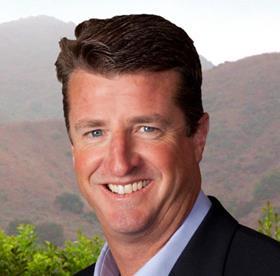
Limoneira – the fast-expanding US citrus group – is looking to acquire more plantations as 2015 dawns. The company has identified approximately US$300m in potential acquisition targets, mostly focused on expanding its production base onshore in California and Arizona, but also with an eye on further international expansion following its purchase of a 35 per cent stake in Chilean citrus pack-marketer Rosales SA last August.
In an exclusive interview in the February edition of Asiafruit Magazine, CEO Harold Edwards said the company was in a very strong financial position entering the New Year. Profit increased 43 per cent year-on-year in fiscal 2014 (ended October) on the back of a 22 per cent growth in revenues to more than US$100m.
One of the key factors has been “higher than historical” lemon pricing resulting from a global shortage of the fruit. That shortage follows the dramatic freezes in Argentina and Chile in July 2013, and further freeze events in California and Arizona in November/December the same year.
While global lemon production has since bounced back, Edwards told Asiafruit that the rebound has coincided with a rise in consumption of the fruit from both established and established markets. So even though supply and demand is more balanced entering 2015, market prices are holding up.
“We’ve been delighted as a producer/supplier to see an increase in global demand for lemons,” said Edwards. “From a produce standpoint, prices have stayed way up there, which is very promising for us.”
In established markets such as the US, the growth in demand has been fuelled by new uses for lemons, and by positive messages around their health benefits, said Edwards.
Perceived health attributes have also been a key driver of demand in export markets, particularly China, where a consumer-frenzy has pushed sales to record levels.
As well as growing its own production, Limoneira packs and markets fruit from third-party producers, but Edwards said the company wants to expand its acreage this year as part of its ongoing push for vertical integration.
“We expect to market around 3.4m cartons of lemons this year, up from 2.9m cartons last year and 3.1m cartons in 2013,” said Edwards. “Some 60 per cent of the fruit will be grown by us, with 40 per cent from outside growers we represent, whereas two years ago the ratio was reversed.”
The company now has over 4,000 acres (1,620ha) of lemons in production across three distinct growing regions of Arizona and California whose seasons overlap to deliver a year-round supply. To compliment its US production, the firm has begun sourcing from Southern Hemisphere supply origins. Besides its minority equity investment in Chilean packer-marketer Rosales, it has a tie-up with Argentinian lemon supplier FGF Trapani, which packs fruit under the Limoneira brand. Edwards noted that such Southern Hemisphere supply partnerships are vital for the company to supply “a very fresh lemon” to its export customers.
“We’re actively seeking to acquire more full-bearing lemon acreage this year, mostly in California and Arizona,” said Edwards. “We’re also eyeing expansion of full-bearing production in Chile. That was part of the reason for our purchase of a minority stake in the La Serena-based operation [Rosales]. It gives us a way to work with high-quality fruit and farms, and to work out where we need to go expand.”
Limoneira wants to grow its lemon business to 10m cartons in the next seven years, and Edwards said Southern Hemisphere supply sources are likely to account for half of that volume.
“We’re also looking at the potential to grow acquisitively in South Africa,” he said. “We need a base there to be a supplier to Western Europe, but a surprisingly high percentage of their production is also finding its way into China and other parts of Asia.”
In addition to being a large grower of lemons and avocados, Limoneira produces oranges and specialty citrus, and the company is looking to boost production of both categories to increase its overall range.
Currently, Limoneira produces around 1m cartons of oranges a year, almost exclusively navels, which are marketed through Sunkist, Sun Pacific and Suntreat. But Edwards said the company is keen to ramp up orange production to the same level as lemons in the long-term (i.e. 10m cartons). “We want to keep it balanced and see no reason why we can’t have equally sized supply chains,” he told Asiafruit. “We see good growth potential for navel oranges in Asia.”
The full interview with Limoneira president and CEO Harold Ewards features in the February edition of Asiafruit. To order your copy, email to subscriptions@fruitnet.com



